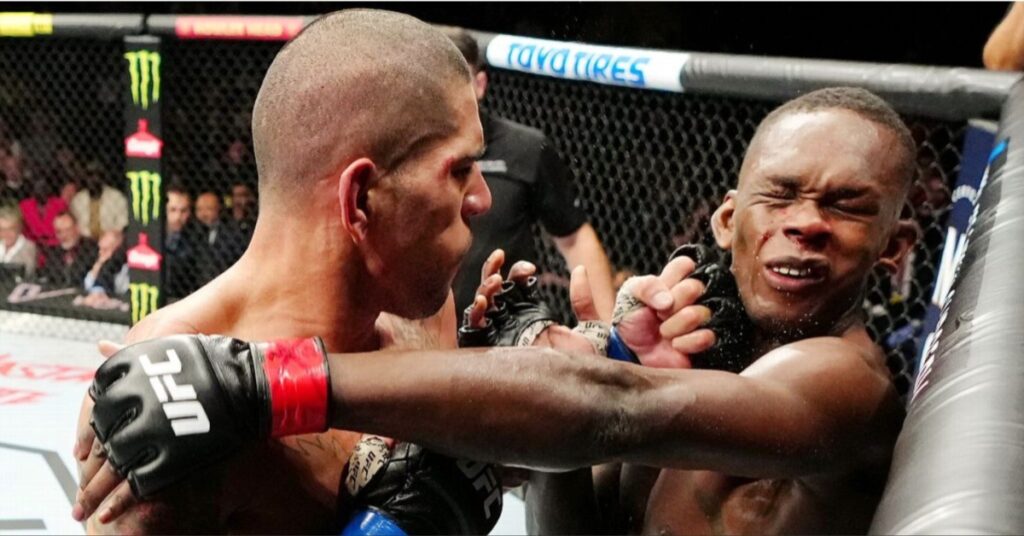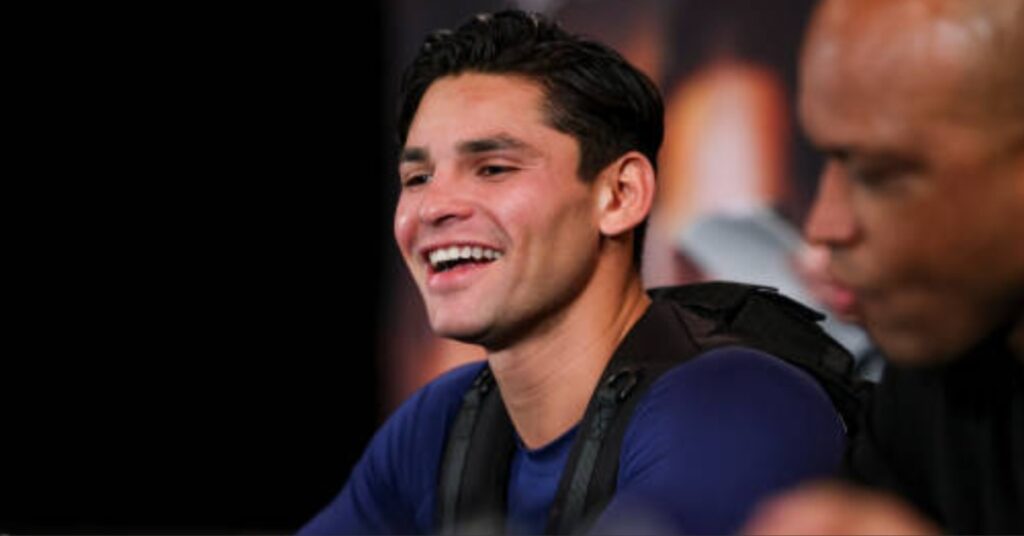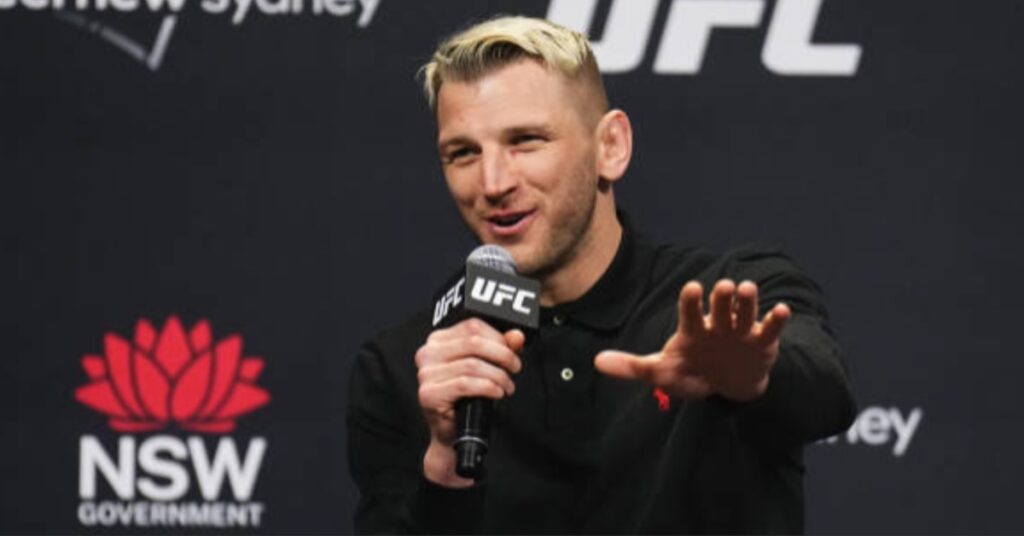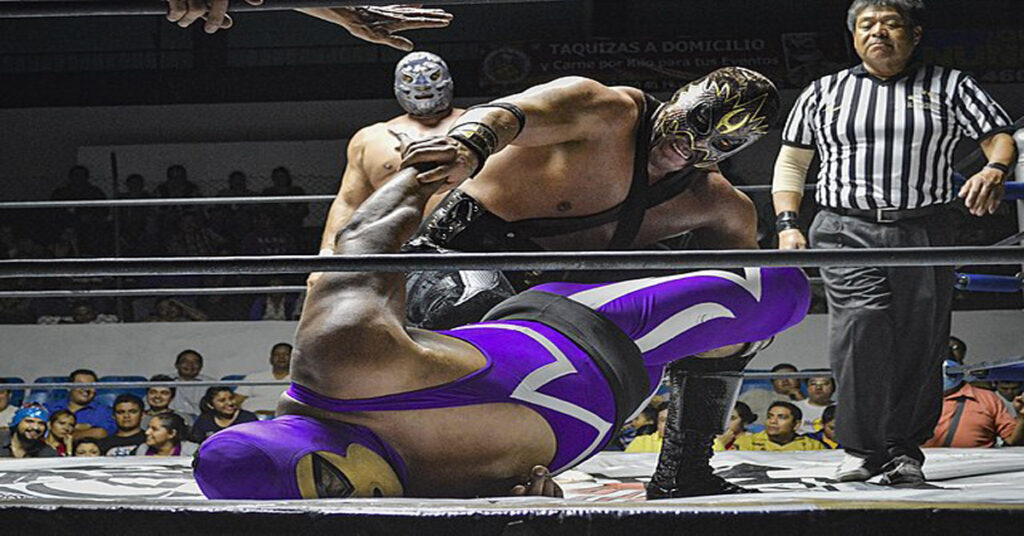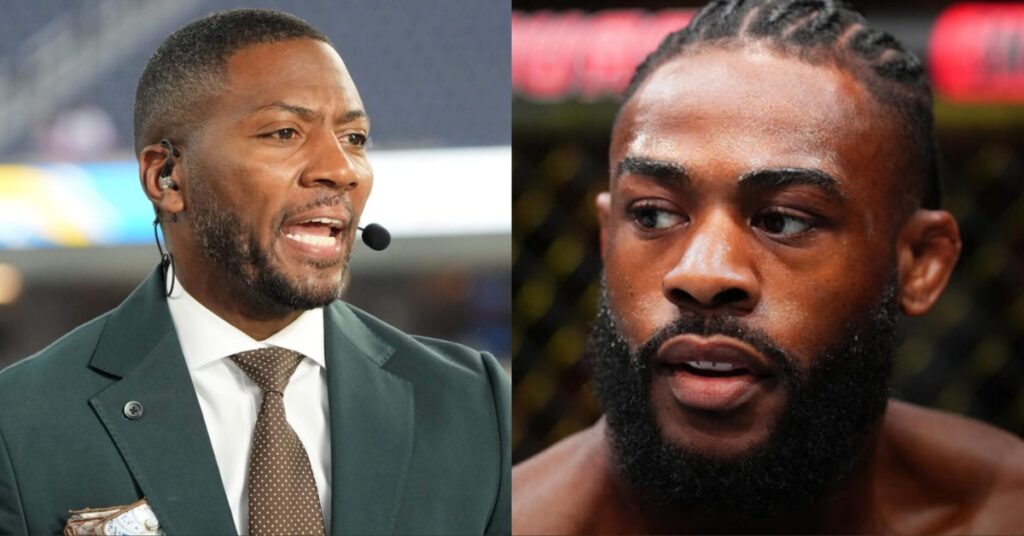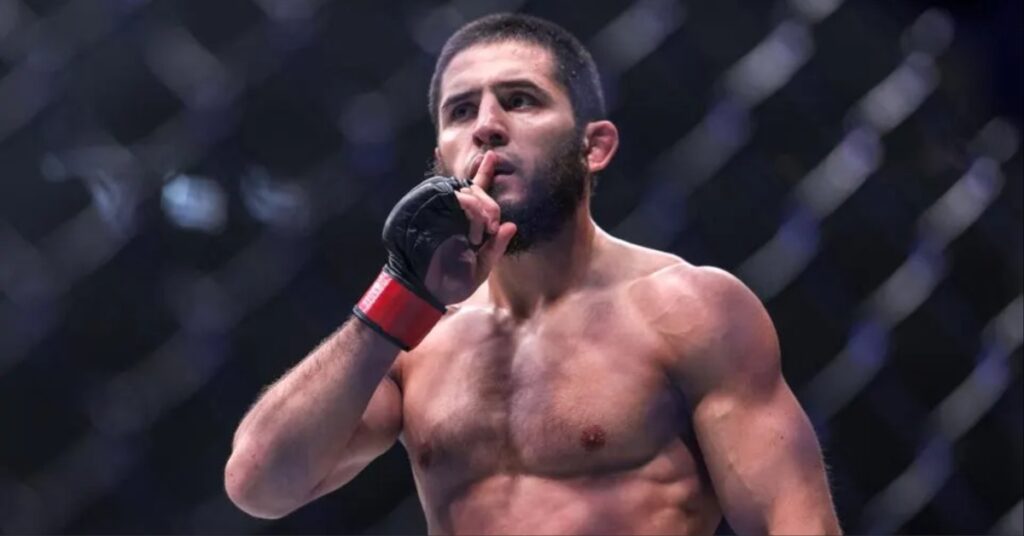The Great Belt Debate: What It Takes To Be A UFC Champion
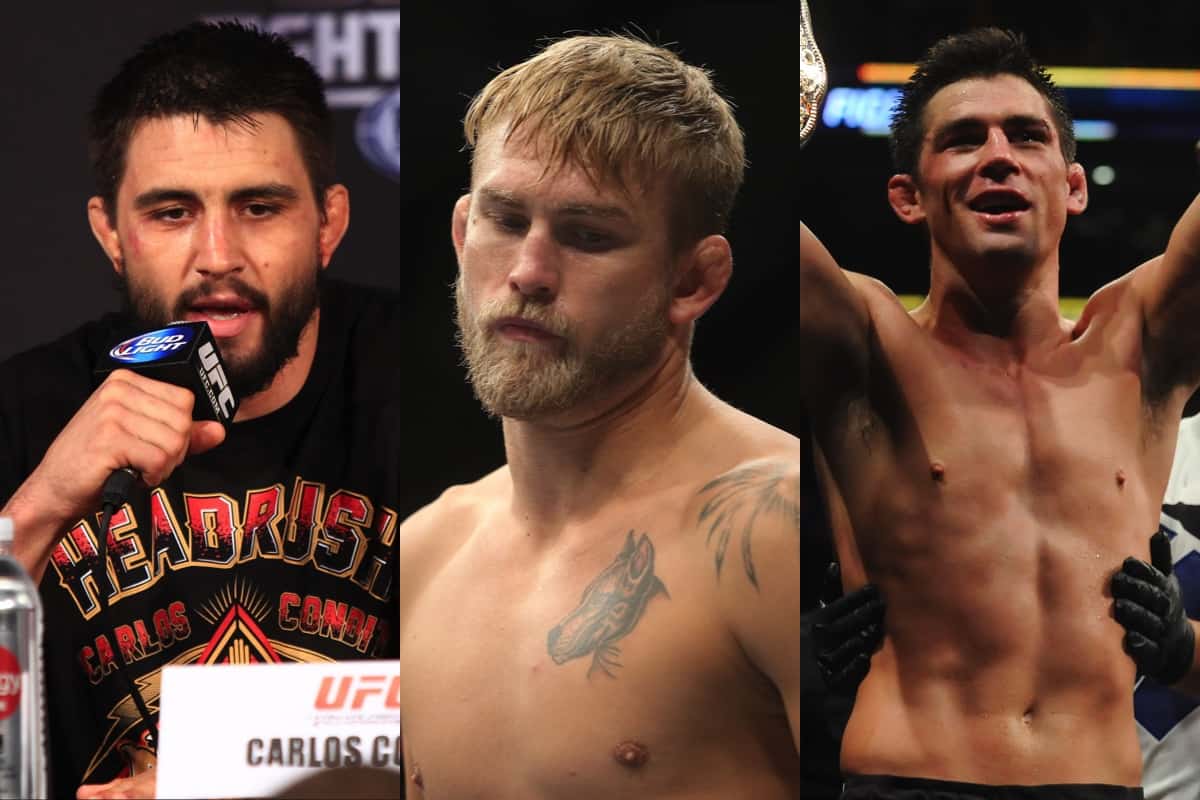
Gee whiz, what’s a guy gotta to do to win a belt around here? Well, we’re here to try and paint both sides of the picture on this polarizing, yet very important debate.
Anyone who’s familiar with the UFC has not only heard, but has personally experienced this question before – what exactly do you have to do to win a title fight in the judges eyes if you’re the challenger? We’ve seen it go both ways before, such as Robbie Lawler’s close win over Carlos Condit earlier this year, or, of course, Jon Jones‘ incredibly controversial split decision win over Alexander Gustafsson at UFC 165. Conversely, we’ve obviously seen the other side of the coin with Dominick Cruz vs TJ Dillashaw earlier this year in January.
In the former examples, the champ edges out a razor-thin decision, just barely squeaking out the win and retains his belt. In the latter, the challenger does just enough to best the champ and earn the nod from the judges.
But enough chatter, let’s break this debate down and analyze both sides of this long-standing unwritten rule that the challenger must decisively beat the champ in order to be the champ.
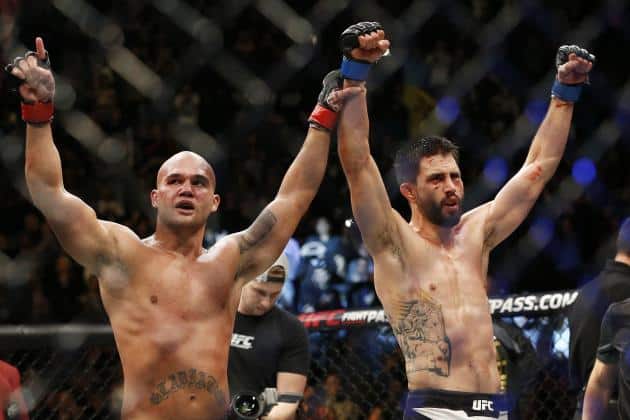
In one scenario, you have the challenger offering up an almost dead-even contest where it’s nearly impossible to tell who’s come out victorious with the naked eye. They’ve had a back-and-forth battle, trading shot for shot, takedown for takedown. Many people even think that the challenger has won the fight, but the judges see it differently for whatever reason, be it damage taken or aggression (that’s a whole different ball of wax that I’ll touch on later this week), and Bruce Buffer bellows his infamous “AND STILL!!”.
The school of thought behind this aforementioned “unwritten rule” is that the champion is the champion, and it’s the challenger’s job to decisively unseat him or her. No two-and-a-half rounds to two-and-a-half rounds; no, that doesn’t work here. Not even three rounds to two can get you that belt in some people’s eyes. You either have to finish the champ, or leave no shadow of a doubt that you won the fight.
Two perfect examples of this, as mentioned before, are Condit vs Lawlor and Gustafsson vs Jones. Both challengers put up a hell of a fight, make no mistake, but they didn’t quite “take the belt” from the champ. Many people would disagree in Condit’s case, but that’s precisely why you can’t leave it up to the judges. Close, but no cigar as they say.
But as with everything in life, there is another side to this story.
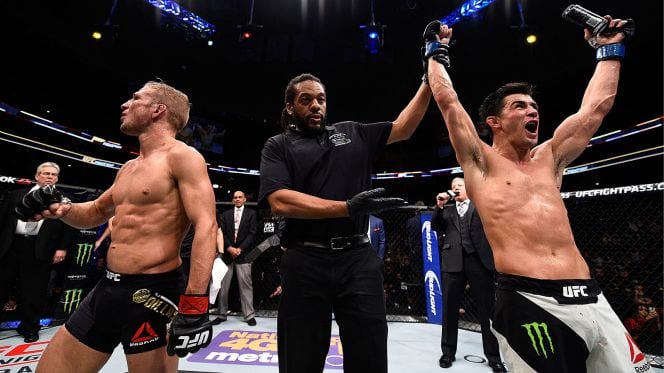
Now, to play the devil’s advocate here, it can go the other way as well. It’s far more rare, of course, but it does occur from time to time in this wacky sport of ours. Most recently (and arguably notably), this took place when Cruz edged out Dillashaw for the bantamweight belt back in January. Cruz put on a salsa lesson for the ages and out scored Dillashaw, throwing in a couple of knee tap takedowns for good measure, but it was a damn close fight. One could even argue that Dillashaw landed the harder blows, and dealt the most damage but again, the judges didn’t see it that way and Cruz won the belt in a rare title fight split decision where the challenger ended up getting the nod.
So, what can we make of all this? Well, a fight is a fight is a fight, and whoever wins more rounds quite simply wins the contest. It shouldn’t matter if you come into the fight as the champ, the fact that you walk into the octagon with a belt to your name doesn’t mean the challenger should have to beat you down according to a different set of rules for this particular fight, so it shouldn’t hold an influence over the judges’ decision.
That’s just my two cents, but hey, what do I know? I just hope, like many MMA fans do, that the judging will somehow improve as the sport evolves, because the talent pool is getting too big and the competition far too elite for it to stagnate. The amazing sport of MMA is growing, but all the pieces of the puzzle will have to grow with it in order for it to reach its true potential.

